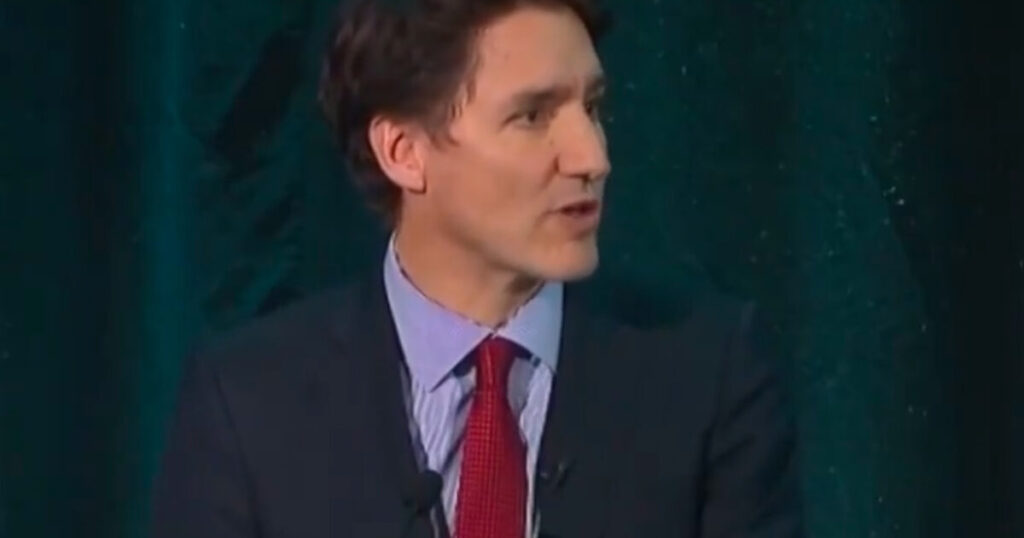In a recent speech, Canadian Prime Minister Justin Trudeau commented on the implications of Donald Trump’s electoral victory, arguing that it signals a concerning trend for women’s rights in the United States. During his address to the Equal Voice Foundation, Trudeau, who is vocal about his progressive ideals and self-identifies as a “proud feminist,” contended that Trump’s presidency and its associated movements represent a retreat from the progress that had been made concerning women’s rights. He lamented the fact that America, for a second consecutive election, had failed to elect a woman to the highest office, thus expressing disappointment over what he perceives as the rise of “regressive forces” that threaten the advancements of women. Trudeau emphasized his commitment to feminism and assured that his government would continue to advocate for women’s rights as allies in this ongoing struggle.
Trudeau’s remarks highlight a significant political moment that has profound implications for Canadian-American relations, especially in light of Trump’s victory over Kamala Harris. The notion that women’s progress is facing backlash has reignited discussions about gender equality and the political landscape in North America. Trudeau’s speech comes as an apparent reaction to the broader social issues and challenges surrounding women’s representation in politics, a theme that the Prime Minister has repeatedly addressed throughout his tenure. He framed the situation as an alarming reminder of the fragility of women’s rights, positing that the political landscape can shift dramatically and undo years of progress in a short span of time.
The backdrop to Trudeau’s comments is critical, as they follow a recent meeting between himself and Trump at Mar-a-Lago aimed at discussing bilateral relations and pressing issues such as border security. Critics of Trudeau have pointed out that his government has faced challenges in defending Canadian interests against the backdrop of increasingly tense trade negotiations with the U.S. Trump’s condescending references to Trudeau as the “governor” of Canada served to further underscore the tension in the relationship, implying a lack of respect for Trudeau’s leadership. This mocking characterization by Trump complicates the already strained diplomatic ties and raises questions about how Trudeau’s government will navigate the fallout from Trump’s success.
Despite Trudeau’s efforts to position himself as a leader committed to advancing women’s rights, the Canadian Prime Minister’s ability to influence U.S. domestic politics remains limited. Trump’s victory poses a formidable challenge to those advocating for progressive policies both in the U.S. and beyond, emphasizing the divides between conservative and liberal political ideologies. In the aftermath of the electoral outcome, Trudeau appears to be using the moment to not only rally support for women’s rights but also to reinforce his own political identity as a defender against what he views as encroaching regressive ideologies. The juxtaposition of these political narratives emphasizes the complexities of international relations in an era marked by significant ideological divides.
As Trudeau navigates this politically charged environment, his commitment to feminism stands as a cornerstone of his leadership style. He continually asserts that women’s rights are not merely a personal belief but rather a fundamental aspect of governance that requires attention and action. This conviction reflects a larger societal demand for accountability and progress on issues of gender equality, which, despite facing setbacks, continues to shape public discourse. Ultimately, Trudeau’s comments and the subsequent dynamics of his relationship with Trump signify how global political actions can resonate within national dialogues about rights, representation, and globalization.
In conclusion, Trudeau’s remarks about women’s rights in the context of Trump’s victory reveal the intricate interplay between local and international politics. As the world watches how these leaders engage with one another, the impact on women’s rights and the broader political climate remains a pertinent concern. Trudeau’s call to action for feminism amidst the backdrop of regressive political movements serves to galvanize support but also highlights the perennial struggle for equality that persists in the face of opposition. As these dynamics evolve, both Canadian and American citizens will be looking for leadership that not only addresses current challenges but also paves the way for a more equitable future.

